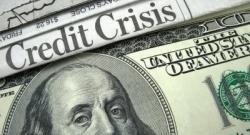Papers and Publications
Jul 29, 2010
Chairman Bowles, Chairman Simpson, members of the Commission – thank you very much for the opportunity to appear before you today.
I am the president of the bipartisan Committee for a Responsible Federal Budget and the director of the Fiscal Policy Program at the New America Foundation. I also am part of the Peterson-Pew Commission on Budget Reform and a member of the Domenici-Rivlin Debt Reduction Task Force. Today, I will discuss a number of the outside initiatives that...
Jul 29, 2010
In his testimony before the President’s fiscal commission, Barry Anderson discussed the characteristics of budget systems, the roles that fiscal rules can play, and how such budget structures have worked internationally—citing the experiences of Sweden and Switzerland.
Mar 10, 2010
Roll Call | March 9, 2010
On a bitter winter night 40 years ago, a British trawler caught in a North Sea gale hundreds of miles from help was accumulating ice on its deck and rigging faster than the crew could chop it away. Soon water flooded the engine room, leaving the boat with only emergency power. In the hour before the vessel sank, a Royal Air Force radio operator made contact and asked: “What are your intentions?” The final transmission came slowly: “No...
Feb 17, 2010
The Peterson-Pew Commission on Budget Reform hosted a conference, “Avoiding a Government Debt Crisis,” on Tuesday, February 16 in Washington, DC. The event brought together a wide spectrum of economists, politicos and fiscal experts to discuss the nation’s fiscal plight and how to change course. The event was moderated by CRFB President, Maya MacGuineas.*
Peterson-Pew Commission co-chair and former Congressman Charlie Stenholm* opened the event by putting the situation in...
Feb 11, 2010
In a testimony before the Senate Budget Committee, former CBO Director and current Peterson-Pew Commissioner Rudy Penner argues for setting an explicit target for the government’s debt-to-GDP ratio. Penner runs through the risks of a high debt-to-GDP ratio and suggests that it should be brought down to 60 percent of GDP, and then stabilized or decreased further.
Feb 11, 2010
In a testimony before the Senate Budget Committee, former OMB and CBO Director and current Peterson-Pew Commissioner Alice Rivlin discusses the dangerous debt trajectory, the need to stabilize the debt at a certain level and by a specificied date, and the pre-requisites of developing a credible plan to stabilize the debt.
Feb 11, 2010
In a testimony before the Senate Budget Committee, Maya MacGuineas argued for the need to pick a fiscal goal, how to think about the right policies to achieve that goal, and the consequences of failing to act.
Feb 10, 2010
Last week, Moody’s Investor Services issued an unsettling warning that the nation’s triple A credit rating could be at risk unless improvements to the nation’s fiscal trajectory are made. The Peterson-Pew Commission recommends that Congress and the White House adopt an ambitious but achievable target that would reduce the public debt.
Jan 25, 2010
The Hill | Jan. 25, 2010
From Afghanistan to China to Copenhagen, the actions of President Barack Obama have international significance. However, the greatest worldwide implications will stem from a domestic issue that he must not ignore: our nation’s mounting government debt. The U.S. has a debt problem, and the world is watching. The administration’s response will dictate not only the standard of living of future generations of Americans, but also their country’s...
Jan 21, 2010
Testifying on long-term deficits before the House Budget Committee, Maya MacGuineas stated that "what was once a long-term fiscal problem has become an immediate one." She also explained that "we no longer have time on our side," and that the economic risks of doing nothing are tremendous. The best approach would be to immediately commit to and develop a credible plan to stabilize the debt, with policies phasing in gradually as the economy recovers.










